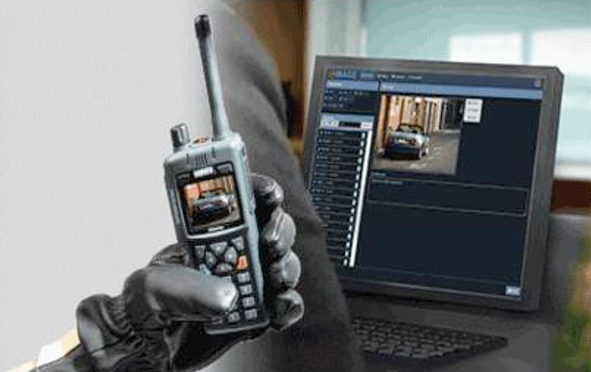Robocops set to patrol the streets by 2084
A UK robotics expert has predicted that in the next 75 years the UK will use robots in a bid to crack down on crime.

A UK robotics expert has predicted that in the next 75 years the UK will use robots in a bid to crack down on crime.
According to the study, carried out by Professor Noel Sharkey of the University of Sheffield, the streets of the UK are set to be patrolled by a series of inter-linking robots designed to cut crime, detect weapons and free up police officers time.
The study, commissioned by Warner Home Video to mark the release of Terminator: The Sarah Connor Chronicles, predicts that by 2084, advanced humanoid robots made from inorganic material will have human-like features and expressions and will be able to arrest humans with a substantial constraining force due to their super-strength and inability to feel pain.
They will also be able to detect weapons including guns, knives and explosives, as well as recognising drunks and aggressive behaviour in large areas.
Prof Sharkey undertook the two-month project to examine the future of the robot in the UK and how it will be developed to aide police and cut down on crime. His research draws on the very latest and future robotic developments in Japan, China, South Korea, Israel, the US and UK and builds upon current ideas and trends from around the world.
Central to his observations are superior knowledge robots that will have access to integrated databases of information on British citizens, including bank accounts, tax, motoring, shopping, criminal records and movements, enabling them to instantaneously identify people.
The report notes that crime in the UK could be drastically reduced with the introduction of these robots that will have the ability to detect weapons, sniff out explosives, and arrest where necessary.
Prof Sharkey believes these androids could be a welcome addition to the British police force and will make the jobs of police officers safer, quicker and easier when it comes to deterring and de-arming suspects.
His research also predicts that autonomous police cars will appear by 2070. These cars will be able to recognise speeding cars, identify numberplates and automatically deduct fines from bank accounts at the same time as adding points on driving licences.
Robots will also have the ability to conduct on-the-spot drink and drug tests to help cut down driving under the influence.
But Prof Sharkey also warns of the dangers that the new technology may introduce in terms of a reduction in privacy and basic human rights for individuals.
The research suggests that this may well lead to public outrage as robots will have access to integrated databases of all information on citizens, making them more advanced than the US Total Information Awareness and the MATRIX (Multistate anti-Terrorism Information Exchange) systems both of which were closed due to public outrage and breach of liberty, privacy laws and human rights.
Prof Sharkey said: Hollywood movies and TV shows such as Terminator: The Sarah Connor Chronicles have been dismissed as fantastical over the years, but this report, based on existing research and current developments, suggests that robots will play a much bigger role in society over the next 75 years than previously anticipated.
These robot developments could be extremely beneficial in the protection of citizens and police in the hands of benevolent governments. But in the wrong hands, as warned in the movie, robot law enforcement could be a major blow to individual privacy and basic human rights.
US technology firm iRobot has unveiled a reconnaissance robot for use by the police and other public safety organisations.
The iRobot Negotiator is highly mobile, able to climb stairs and easy to operate. It can be fitted with a civil response kit and a range of add-on accessories to enhance its reconnaissance and chemical detection capabilities.
Joe Dyer, president of iRobot Government and Industrial Robots, said: There is growing support and demand for unmanned ground robots as organisations recognise the diff



